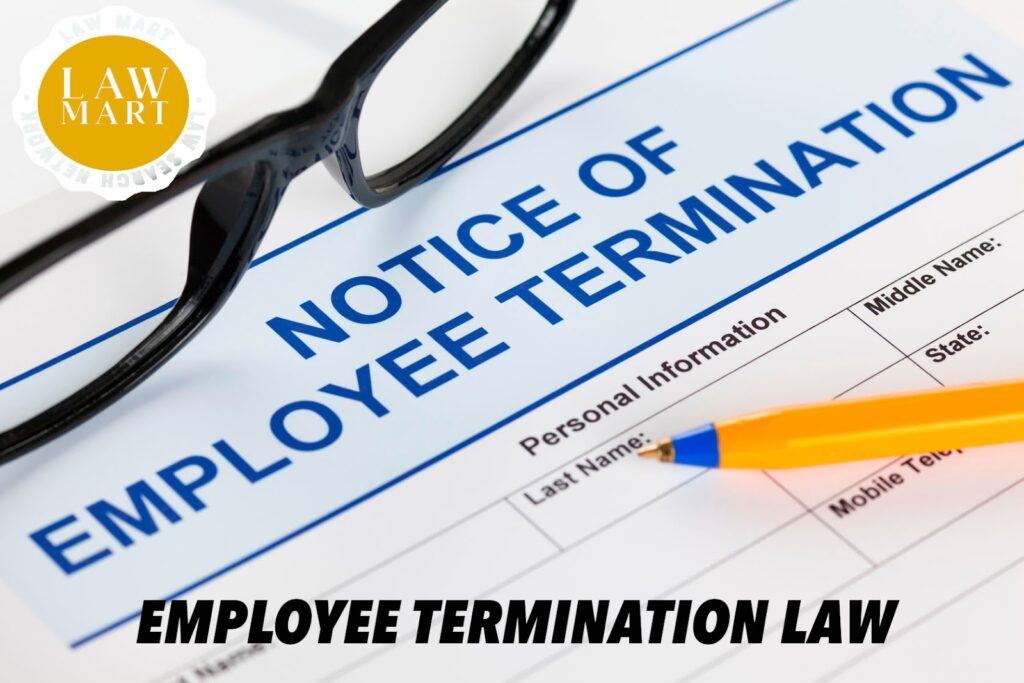
Employee Termination Law
If your company is contemplating on firing an employee, you may want to negotiate a severance agreement and liability waiver to make sure the provisions of those agreements protect your company and comply with the law.
At-Will or For Cause Termination
Whether your employee is let go “for cause” or “at will,” you should always investigate the person’s file before letting them go. Before moving forward, it is vital to check if the employee has made any complaints about mistreatment, discrimination, or wage and hour issues. This way you are not firing the employee for a reason that he or she could claim is retaliatory.
Abiding By Your Policies
Most companies have written policies that list the steps your company must take before terminating an employee. For instance, if your business has a policy of terminating employees after a certain number of written warnings. And if your company only fires a number of employees while overlooking others who also have warnings, your company could be in danger of a discrimination or wrongful termination lawsuit.
Final Pay and Waiting Time Penalties
California Labor Code section 201(a) mandates, “If an employer discharges an employee, the wages earned and unpaid at the time of discharge are due and payable immediately.” Section 227.3 requires that if your company offers paid vacation, you must pay out any vested but unused vacation time to the employee upon termination.
There are also strict rules in regards to the timing of the final check for employees who quit. If you give an employee two weeks’ notice but the employee quits on the spot, your company cannot wait two weeks to send final pay. Labor Code section 202(a) states that employees who quit on the spot are still entitled to have their final pay mailed out no later than 72 hours after they quit.
Severance Agreements and Liability Waivers
Based on California law, you are not required to provide severance pay to terminated employees unless you previously contracted to do so. Nevertheless, you may choose to offer severance pay in exchange for the employee’s agreement to certain terms. Here are a few terms that may call for a severance agreement:
1) Severance Pay
You may desire to offer a severance payment in exchange for the employee’s waiver of claims against your company. These can include claims for wrongful termination, discrimination, or harassment. Liability waivers in severance agreements are generally enforceable, but some are not, including:
- Individual claims for wage and hour violations
- Unemployment compensation claims
- Workers’ compensation claims
- Waivers of age discrimination claims for employees over 40
- Waivers of unknown claims
2) Have an Employee Agreement
You may wish to offer severance pay to ensure the employee keeps certain information private. This usually includes trade secrets and other proprietary information.
3) Do Not Ask an Employee to Violate the Law or Lie to a Court
You should not comprise any provision in the severance agreement that would require an employee to violate the law or lie in a court or an official proceeding.
We Are Here For You 24/7
The faster you speak to a Business Litigation Attorney the better. Waiting too long to file business cases can complicate your case. Make it easy on yourself. Call us to talk with an experienced business lawyer right away. Your call is confidential, and you’re FREE CONSULTATION with one of our business litigation attorneys at (310) 894-6440.
Lawyer Referral Service
If you are in need of a business litigation attorney to help you get appropriate compensation and medical care you deserve, you should contact an attorney today. Our experienced business litigation attorney will help you find the solutions you need for your legal issues.
If you have any questions about the information provided above, please contact Law Mart at (310) 894-6440. Law Mart is a Lawyer Referral that can provide you with a Business Litigation Attorney.



